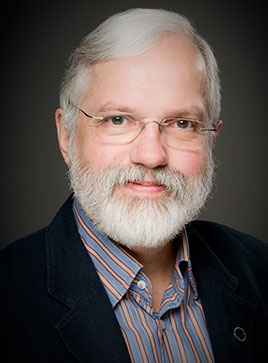COVID-19

Equity in unequal times: Supporting a ‘One Health’ approach to the COVID-19 response

The evidence to date suggests that SARS-CoV-2, the virus that causes COVID-19 disease, initially spread from animals to humans. For Dr. Ronald Labonté, a social scientist and public health expert at the University of Ottawa, these types of infections top the list of global health challenges that deserve our urgent attention. The trouble is that they are not simple to address, as contemporary human-animal interactions that are driving the risk for infection are complex and profound.
“We cannot respond effectively through any one sector alone,” he explains. “We need to bring animal, human, environmental, and social sciences together to collaborate and find solutions.”
This approach to collaboration is known as One Health, and it is the starting point for his own research into the global COVID-19 response. His current project builds on the Global One Health Network (Global 1HN), an interdisciplinary network that he leads alongside Dr. Hélène Carabin from the Université de Montréal. Focused on improving the global governance of infectious diseases and antimicrobial resistance by using a One Health approach, the network was well positioned to begin working on the COVID-19 pandemic immediately.
Dr. Labonté and his partners are now working to support evidence-based public health actions related to the pandemic. Their strategic and multi-pronged approach ranges from using a novel social media surveillance system to track the spread of disease (not the spread of misinformation) to examining the best ways to ensure that vaccines and therapeutics end up being affordable for everyone.
Dr. Labonté’s own piece of the puzzle is geared toward integrating the principles of equity into government responses to COVID-19. “We know that this is an unequal opportunity threat,” he says, noting how it is already clear that the pandemic is affecting people differently depending on their socio-economic status, here in Canada as well as abroad. This variability in potential impact underscores the need to ensure that protection efforts and relief measures take the needs of the most vulnerable groups into account. Dr. Labonté and his team at the University of Ottawa will monitor and document pandemic-related actions at the global level, subsequently identifying equity gaps and making recommendations for policy improvement.
For Dr. Labonté, this is the time for thoughtful global action—but also a time for deep reflection.
“What kind of a ‘normal’ do we want after this, in a post-COVID world?” he asks. “Our work is about what we can learn from the immediate crisis, but it is also an examination of what we know about the pre-COVID period that led to this situation. If we don’t start grappling with these considerations, all we will do is repeat some of the worst parts of the previous ‘normal’—and then we will just repeat the same conditions that led to this now.”
Related reading
- Date modified: